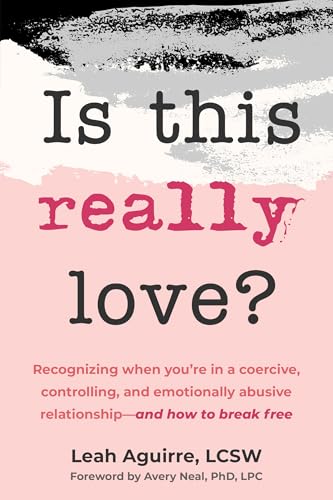Is This Really Love?: Recognizing When You're in a Coercive, Controlling, and Emotionally Abusive Relationship—and How to Break Free
amazon.com
Is This Really Love?: Recognizing When You're in a Coercive, Controlling, and Emotionally Abusive Relationship—and How to Break Free

Additionally, when you try to explain yourself and your position, it can appear as if you are having a discussion with the EAP and that the boundary is up for debate. Do not give the EAP any more opportunities to assert control or influence or make you question your decision. Your boundary is your boundary and that is all the EAP needs to know.
They don’t really want to break up because the relationship has been working for them. This means that you are going to have to take control. When you have become accustomed to taking the back seat in your relationship and your partner has been making all the calls and setting all the terms, taking control can feel uncomfortable and unnatural;
... See moreEAPs still need to be held accountable and you have the right to be free from the manipulation and trauma caused by the relationship.
Regardless of their past or lack of emotional maturity,
they want to be seen, heard, and responded to.
In relationships, the emotionally abusive partner’s need for control often manifests in a variety of controlling behaviors (both consciously and unconsciously) that infringe on the autonomy of their partner. They tend to hold the belief that they have a say in what their partner does, who they spend time with, their interests, and their values.
... See moreThey also see their friends, family, and partners as an extension of themselves and can become upset or frustrated when the people closest to them express opposing feelings or beliefs. They can be pushy and try to impose their opinions onto others while making no or little attempt to gain an understanding of alternative opinions. When they feel out
... See moreThey prefer things to be done in a way that feels good and safe for them—even if it is at the expense of others or makes other people uncomfortable.
In relationships, EAPs can come off as very “hot and cold.” One moment, they are pleasant and warm—the next, they are angry or reactive. They often switch from being very loving and adoring of their partner to agitated and resentful. When you are in a relationship with an EAP, it often feels as though you are having to constantly walk on eggshells,
... See more